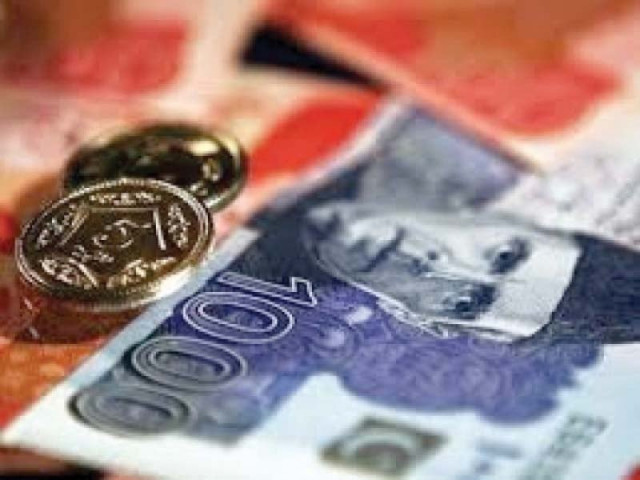SMEs, can cure economic ills
Country can set up SME, agri-zones in collaboration with China, Germany

Economy. PHOTO: FILE
The current economic situation in Pakistan can also be described as stagflation. Prime Minister Imran Khan-led government is putting in every effort to overcome the problem, but the crisis is big enough.
Stagflation has stemmed from heavy borrowing, artificial management of the exchange rate and a consumption-led growth for a longer period of time. Pakistan’s debt has reached Rs37.7 trillion.
The situation has become more complicated over the past one year. A latest report released by the Asian Development Bank highlighted the seriousness of the economic woes. According to the bank, Pakistan’s growth rate is estimated to fall to 2.8% whereas inflation will rise to 12% in current fiscal year 2019-20.
The impact of inflation will be felt the most in energy prices, food items and transportation cost. According to the Pakistan Bureau of Statistics (PBS), the prices of many commodities have increased sharply in the past one year.
Among these, gas charges went up 114.64%, onion prices rose 59.06%, pulse (moong) 45.89%, cigarettes 37.91%, gur 34.34%, sugar 32.82% and chicken 30.40% in urban areas.
In rural areas, the price increase was noted in onions at 65.21%, pulse (moong) 48.60%, gur 39.86%, sugar 34.47% and newspapers 33.33%. However, there was a decrease of 4.04% in electricity charges. The country’s economic condition requires the government to deeply assess the problem in a bid to find out the reasons of slow progress and the room available for implementing policies for economic revival.
However, the government’s hands are tied in the wake of conditions of the International Monetary Fund (IMF) loan programme. It is also bound to implement stern conditions of the Financial Action Task Force (FATF).
The prime minister’s economic team is busy selling the dream of miracles and is missing the tiny steps required for the revival of economy. For instance, an idea is floating in government circles that Pakistan’s economy will be transferred to an engineering base in the next five years.
But the government needs to understand that economic transformation is a long-term process and takes time to deliver results. It needs to frame policies and take initiatives according to the country’s development status. A major impact of misplaced focus is a sharp increase in inflation and decrease in the growth rate.
Agriculture
In order to tackle stagflation, the country will have to invest in small and medium enterprises (SMEs), and agriculture and livestock sectors. The current economic status suggests that the country should pay attention to the commodity sector for making rapid progress.
Agriculture does have a multiplier effect on the economy and society. It will help overcome issues of food insecurity, stunting, lack of raw material for industries and widespread poverty through better livelihood opportunities.
Agriculture also has the potential to bring foreign exchange as estimates show Pakistan can earn $5-6 billion annually by exporting agricultural products.
Apart from the farm sector, the SMEs can also help transform the economy from the primary to secondary stage. It provides basic infrastructure for the transition. Scores of examples can be found from around the world where SMEs have played and are playing a leading role in different economies.
Germany is a prominent example. According to official statistics, 99% of companies in Germany are registered as SMEs and they contribute 68% to the national economy.
According to China’s statistic year book 2015, 97.7% of registered companies in China are SMEs, which have a share of about 62% in national revenue.
Germany and China revolutionised their industrial sector by promoting the SMEs and by forging strong linkages with big players. China achieved the status of world factory due to strong engagement with the SME sector. Germany is still sustaining its growth by investing in SMEs.
Lessons to learn
These are good examples for Pakistan to follow. Pakistan has already a large number of SMEs producing sports goods, leather products, electric fans, medical instruments, shoes, cutlery and textile products.
The country needs to expand the base and modernise these sectors. The inclusion of food, livestock and agriculture sectors will help give a fresh boost to the economy. Pakistan can easily encourage investment in the SMEs by China and Germany. Joint ventures can be a way to attract investment.
The government can declare two to three Special Economic Zones as SME zones. These zones should be open to investors from all over the world. Three-country SME zones can also be set up by forging partnerships with China and Germany. China already has a good experience of working with Germany through the Sino-German Economic Park in Qingdao city. It is considered one of the most successful ventures between China and Germany.
Similarly, Pakistan can also launch a three-country SME zone for agricultural commodities, especially for food and meat processing. The government should talk to China about inclusion of other countries in the SEZs planned by the two countries. Past record of China shows that it will be happy if other countries join forces.
However, in order to give priority to the SMEs and agriculture sector, the government will have to develop and implement a comprehensive framework, provide financial support and create a good investment environment.
Lastly, the people of the country will have to show patience and wait for the outcome as any policy initiative takes time to deliver results.
The writer is the Executive Director of Zalmi Foundation
Published in The Express Tribune, September 30th, 2019.
Like Business on Facebook, follow @TribuneBiz on Twitter to stay informed and join in the conversation.



















COMMENTS
Comments are moderated and generally will be posted if they are on-topic and not abusive.
For more information, please see our Comments FAQ